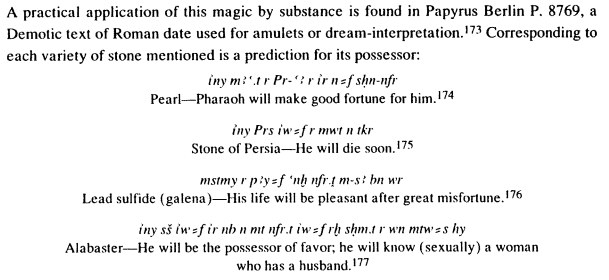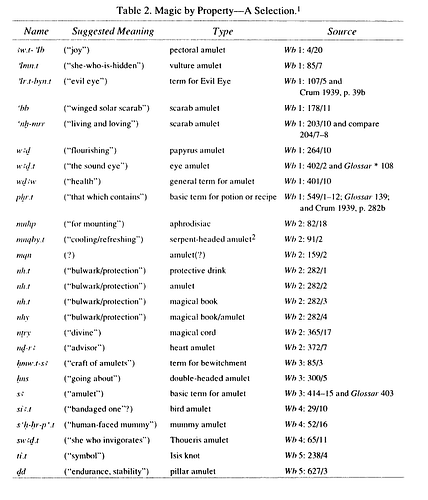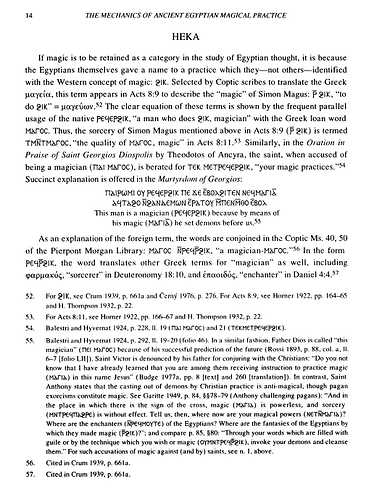I’d say it’s the same idea with table-held amulets, just a bit different object.
I managed to get myself an ankh-was-dhed amulet, and hopefully it also works to give me life, strength and stability, but it primarily is as a means of reminding myself about the Gods.
I have begun wearing a replica faience ankh-was-djed amulet myself, and most certainly do feel the burden on it after a difficult day… but also appreciate the release that comes with removing it thereafter.
Necro’ing this…
I believe Thomas George Allen’s translation of the Book of the Dead (officially available as a free pdf here, from the Uni of Chicago) may interest you. There’s a couple spells there concerning amulets (such as 160 and 156). I’m sure other translations have them also.
Not sure if there’s more (logically, there should be…), I have only heard of this just now from another book I’m reading regarding similar subjects and so I only managed to briefly check it out (scrolling very fast, stopping randomly, reading, repeat).
May be a good reference for the future!
Pro tip: Ctrl+F and typing “amulet” in the search field may prove useful ;^)
This is a more modern reference that includes lots of useful details on amulet construction.
Some relevant excerpts:

Aha, we read the same books it seems! That’s how I came across the Allen BoD, the book’s references… Very good book indeed, shame that not that many people seem to know of it.
Oh yes… I downloaded Mechanics of Ancient Egyptian Magical Practice before, but didn’t read it properly. I just skimmed a few bits.
That table showing amulets and properties is intriguing. I don’t remember seeing that before! Maybe that book is worth another read.
I have been contemplating getting another amulet but haven’t been sure about which one…
I like the format of The book of the dead @mensab that you linked to because of the way it separates the spells. Can be used as a reference book. I read the spells that you mentioned and that’s helpful insight.
Thanks both for the information/links.
Before you get your hopes up too much there are only two tables in the book:

To be honest I find this one a moderately difficult read due to the overwhelming abundance of referencing and academic precision, but also worth investing the time into - including the rabbit holes of references.
The opening page on Heka exemplifies this somewhat…

